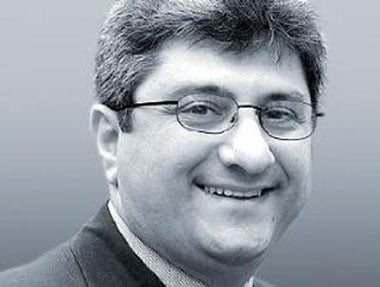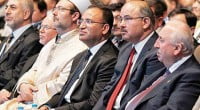Erdoğan’s imaginary power struggles

Date posted: December 25, 2013
İHSAN YILMAZ
When we look at international media coverage of the recent corruption scandal in Turkey, we see that the events are generally seen as a “power struggle” between the Justice and Development Party (AKP) government and the Hizmet movement.
While there is an undeniable tension between the two, it is reductionist to frame events in this way, blocking us from a fuller and more sophisticated picture.
It is regrettable that nobody believes there might be a few good men in the judiciary and police who are just doing the jobs the nation pays them to do. Perhaps this is just an ordinary corruption case in a country where corruption and bribery are known to be very common. Accepting the “power struggle” argument may also mean siding with the AKP government, as Prime Minister Recep Tayyip Erdoğan’s government has been making the same argument. If you listen to Erdoğan, you will know his argument that the corruption case is not the result of a legitimate judicial investigation but a conspiracy organized by a gang, i.e., the Hizmet movement, nested within the judiciary and the police. According to the government-controlled newspapers, these people are also spies cooperating with the US Central Intelligence Agency (CIA) and the Israeli MOSSAD.
Thus, the media should approach the “power struggle” theory with extra vigilance and care. On studying Erdoğan’s speeches after the corruption scandal broke out, we see that the Hizmet movement is not his only target. His bag of tricks is full of the “usual suspects” that he wants the Turkish people to despise. In other words, he is claiming not only that the Hizmet movement is engaged in a power struggle with his party, but that several others are as well. We have witnessed this before, most recently during the Gezi Park protests. Whenever he is in trouble, the prime minister blames shadowy forces without a shred of evidence. During and after Gezi, he and his loyal men boasted of concrete evidence proving their allegations, saying that this proof would be produced soon.
But, so far, we have not been presented with any evidence. In fact, the only evidence the Gezi prosecutor included in his indictment to “prove” a global conspiracy was the international media coverage, for example from CNN and the BBC, of the protests. Sedat Ergin, a columnist with the Hurriyet newspaper, made a list of Erdoğan’s “usual suspects” during the breaking out of the corruption scandal. Ergin prepared this list by analyzing Erdoğan’s most recent speeches. Here are the dark forces behind the corruption case conspiracy against Erdoğan’s government: A. The US; B. the so-called “Jewish lobby”; C. Gangs and the mafia; D. Gezi protesters; E. the Turkish media; F. the foreign media; G. Turkish business tycoons (TÜSİAD); H. the “interest rate lobby”; I. the “blood lobby” (those who are against the Kurdish negotiations); J. the opposition parties; and K. the Hizmet movement. He, of course, does not have any evidence but hopes that his voters will swallow these fabrications.
That is why he continues to claim that people will answer for all these conspiracies at the ballot box. He even likened newspaper headlines to bullets that threaten the “national will” represented in Parliament, meaning of course, his party and not the opposition. A close reading suggests that the judiciary and media are not needed to settle political scandals and accusations, since these will be settled in the elections. Erdoğan was challenged by the Hizmet movement’s Journalists and Writers Foundation (GYV) last summer to produce his evidence about the media, judiciary and bureaucrats who are alleged to receive orders from the Hizmet movement. So far, he has only been trying to undermine the movement’s credibility, as it has refused to be an uncritical supporter. In what seems to be a well-planned psychological warfare campaign, he is merely repeating accusations made by the Kemalist oligarchy, which opened a case against Fethullah Gülen in the 1990s on these grounds. But still they could not prove anything, despite the fact that they controlled the judiciary completely.
Source: Today's Zaman , December 25, 2013
Tags: Defamation of Hizmet | Democracy | Hizmet and politics | Turkey |
























